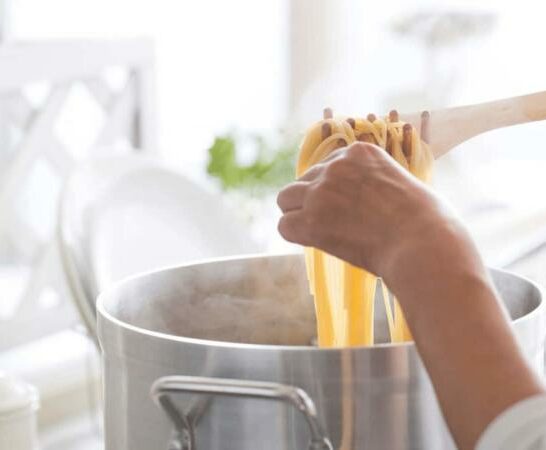How Much Weight Does Pasta Gain When Cooked?
Pasta is a common staple in many diets. It is versatile, cheap, and easy to make.
Pasta is one of those dishes that you can transform into anything. As part of a balanced diet, you need grains.
Pasta can provide a source of nutrition.
It’s no secret that pasta increases in size when you cook it, but how much weight does pasta gain when you cook it?
How Much Weight Does Pasta Gain When Cooked?
Pasta gains 2.4x its weight when you cook it. One serving size of pasta is around 2 ounces when dry. When cooked, one serving of pasta is around 4.8 ounces. When you cook pasta al dente it will gain 2.25x its weight when cooked. Therefore 2 ounces of pasta will be 4.5 ounces when cooked al dente. Pasta gains weight as it cooks due to the absorption of water. The key is to ensure that you have the proper balance of pasta, water, and timing.
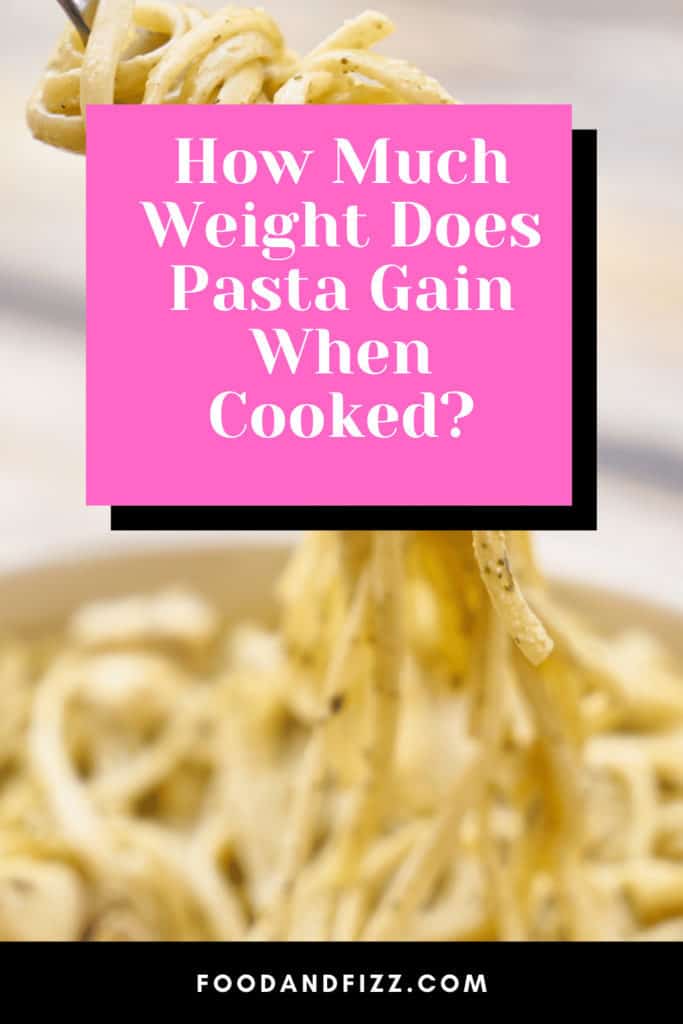
Water Has a Big Part to Play
Pasta increases in weight due to the amount of water that the pasta absorbs. Like with anything that expands due to water, pasta becomes more saturated as it cooks.
However, if you’re trying to adjust how much pasta you’re making, changing the water level isn’t the solution.
If you use too little water, then your pasta will not cook properly.
While you can’t use too much water for most pasta, it comes down more to timing.
If you have more water than necessary and leave your pasta in for longer than it should, your pasta will continue to expand.
The result will be mushy pasta.
While pasta that you have in your pantry comes with instructions, not everyone prefers to follow them.
If you’re cooking pasta by eyeing it, it can take a few tries to know the pasta to water ratio.
You’ll eventually find the right ratio to ensure that you won’t end up making more pasta than intended.
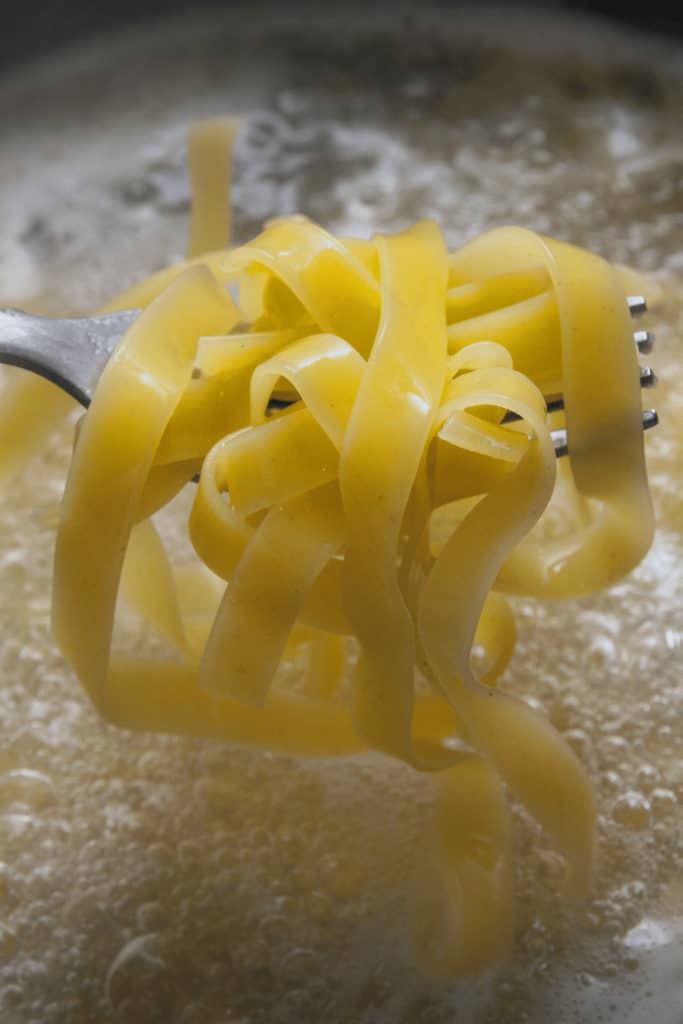
How Much Weight Does Raw Pasta Gain While Cooking?
- 17 ounces of pasta = 38.6 ounces of pasta when cooked (2.4x)
- 17 ounces of pasta = 38.25 ounces of pasta when cooked al dente (2.25x)
- 17 ounces of dry pasta = 44.2 ounces of pasta when cooked (2.6x)
When it comes to pasta gaining weight while cooking, the standard is that it gains 2.4 times its initial weight.
For example, if you are cooking 17 ounces of pasta, after cooking it will weigh around 38.6 ounces.
Keep in mind, this is if you are cooking it to be the ideal consistency for pasta (which is al dente).
When you’re looking at pasta that is cooked from dried pasta at home, many times you’ll find that it gains 2.6 times its initial weight as it cooks.
If you don’t correctly cook the pasta, you may find that the pasta weighs less or more than these percentages.
If you undercook pasta, your pasta will weigh less, but who wants to eat crunchy pasta?
On the other hand, if you overcook your pasta it will gain more weight. It will also be a mushy mess as a result.
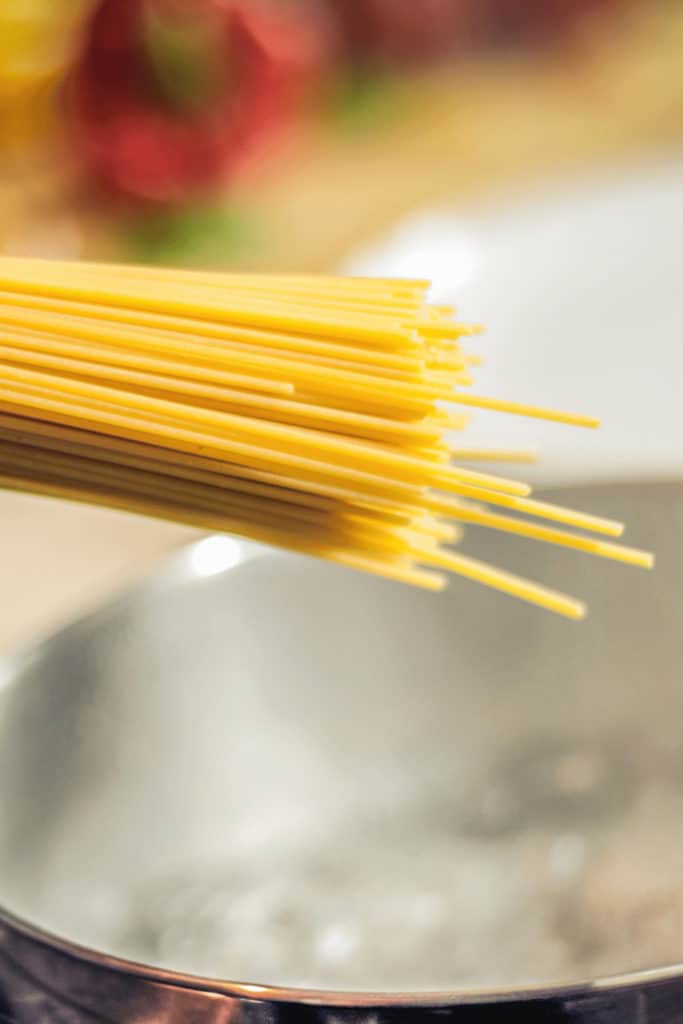
Factors that Affect Pasta’s Weight
Keep in mind that if you add sauces or other ingredients while cooking your pasta, you can expect it to gain a considerable amount of weight when compared to just cooking noodles.
One example of this is using the ‘one-pot method’, where you cook your pasta with your pasta sauce and very little water.
If you are cooking your pasta in this fashion, if you add 17 ounces of dry pasta, rather than ending up with around 38.6 ounces, if you add sauce and meat, such as sausage, you will end up with pasta that weighs around 48 ounces.
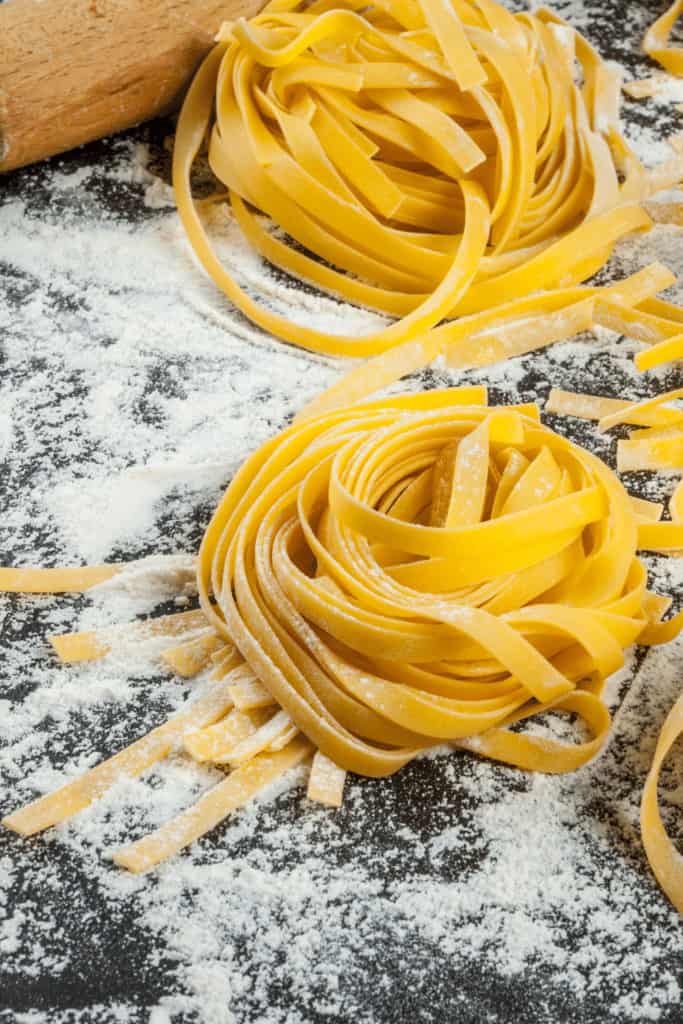
On the other end, cooking your pasta al dente produces pasta that has a slightly lower weight.
If you are cooking your pasta to be al dente, you take it out about two to three minutes before it is cooked.
This method makes your pasta have slightly more texture and it holds its form better than if you were to allow it to cook longer and absorb more water.
Al dente pasta, because it absorbs less water, has a lower weight. One serving of al dente pasta will go from around two ounces to 3.5 ounces.
If you are sticking to a strict diet where weight matters, al dente pasta should be your go-to choice when cooking all types of pasta.
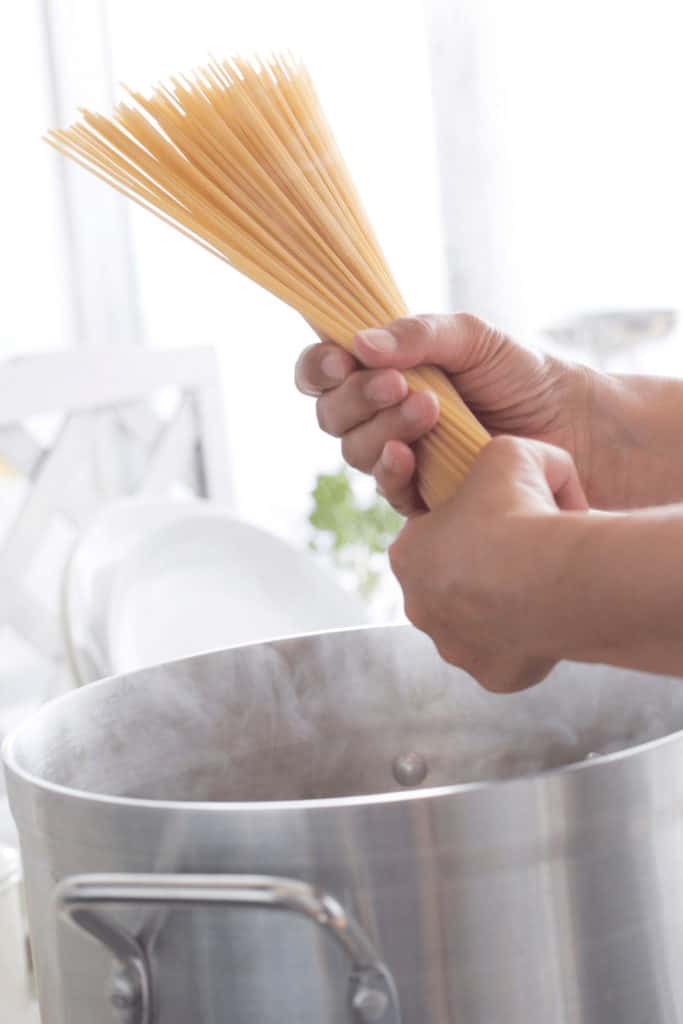
Frequently Asked Questions About How Much Weight Pasta Gains When Cooked
How much pasta should I cook if I’m looking for one?
Pasta can be difficult when it comes to measuring for one serving. Because of the change in size, it’s easy to end up with triple the amount of pasta that you originally wanted. With long kinds of pasta, you can measure without a scale. If you put your index finger against the base of your thumb, the amount of pasta that can fit in between is generally considered one serving. With macaroni and penne, a good serving size is 1/2 cup. With smaller kinds of pasta, such as orzo, 1/4 is a good size.
How do I know if my pasta has gained too much weight while cooking?
If you’ve left your pasta in water for too long, it will continue to absorb and gain weight. Pasta that has gained too much weight will be mushy and overcooked. Because there are so many different types of pasta while cooking, the best method is to frequently check the tenderness of the pasta. If you are cooking raw pasta, letting it gain too much weight from water can lead to it falling apart.
If pasta weighs less, does it have fewer calories?
While you may think that if your pasta weighs less after cooking, it has fewer calories, this isn’t true. The weight gain from cooking pasta comes from water. Water has no calories.
How much weight does fresh pasta gain when cooked?
2 ounces of fresh pasta will be about 2 ounces when cooked. Fresh pasta when cooked will weight about the same. Fresh pasta when cooked does not gain a lot of weight as it already contains quite some humidity. It mainly only stretches.
Conclusion About How Much Weight Does Pasta Gain When Cooked
Because of the absorption of water, pasta gains water as it cooks. Typically, you can expect your pasta to double in size.
With the standard size of one serving of pasta being two ounces when dry, you can expect it to be around four ounces when fully cooked.
If you are on a diet where you weigh your food, you should weigh your pasta after cooking.
Dry pasta is significantly lighter than cooked pasta.

